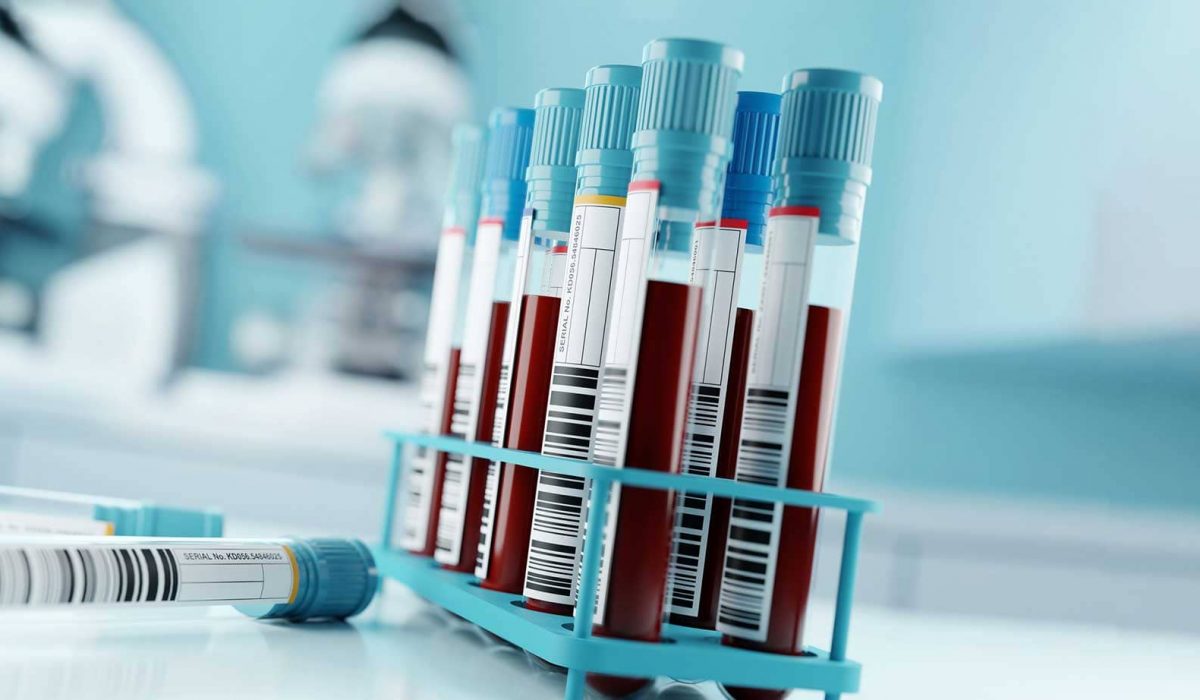The Importance of Routine Blood Work
Routine blood work involves analyzing a sample of blood to assess various health markers, such as cholesterol levels, glucose levels, and organ function. These tests are essential for several reasons:
- Early Detection of Diseases: Blood tests can identify signs of diseases before symptoms manifest, allowing for early intervention and more effective treatment. For instance, elevated cholesterol levels detected through a lipid panel can indicate an increased risk of heart disease, prompting lifestyle changes and medication to mitigate this risk.
- Monitoring Chronic Conditions: For individuals with chronic conditions such as diabetes or hypertension, routine blood tests are vital for monitoring disease progression and the effectiveness of treatments. Regular checks of HbA1c levels in diabetics, for example, help in adjusting medication and dietary plans to maintain optimal blood sugar control.
- Assessing Organ Function: Blood work can evaluate the health of vital organs, such as the liver and kidneys. Liver function tests (LFTs) and kidney function tests (KFTs) measure enzymes and other markers to detect issues like liver disease or kidney failure at an early stage, ensuring timely intervention.
- Nutritional Deficiencies: Blood tests can reveal deficiencies in essential vitamins and minerals, such as vitamin D, B12, iron, and calcium. Addressing these deficiencies through diet or supplements can prevent long-term health issues like anemia or osteoporosis.
Routine Blood Test Screening and Disease Prevention
Routine blood tests play a critical role in preventing a wide range of diseases by enabling early diagnosis and proactive management. Here are some examples:
- Cardiovascular Diseases:
- Lipid Profile: Measures cholesterol and triglyceride levels. High levels of LDL (bad cholesterol) and low levels of HDL (good cholesterol) increase the risk of heart disease and stroke.
- C-reactive Protein (CRP): Elevated levels of CRP indicate inflammation in the body, which can be a risk factor for cardiovascular disease.
- Diabetes:
- Fasting Blood Glucose: Measures blood sugar levels after an overnight fast. High levels can indicate prediabetes or diabetes.
- HbA1c: Provides an average blood sugar level over the past 2-3 months, helping to diagnose and monitor diabetes.
- Liver Disease:
- Liver Function Tests (LFTs): Assess enzymes like ALT and AST, which can indicate liver damage or inflammation from conditions like hepatitis or fatty liver disease.
- Kidney Disease:
- Kidney Function Tests (KFTs): Include measurements of blood urea nitrogen (BUN) and creatinine levels to evaluate kidney health and detect diseases like chronic kidney disease (CKD).
- Thyroid Disorders:
- Thyroid Function Tests: Measure levels of TSH, T3, and T4 hormones to diagnose conditions like hypothyroidism or hyperthyroidism, which can have widespread effects on metabolism and energy levels.
Debunking Myths: Blood Testing is Not Just for Older Individuals
A common misconception is that routine blood tests are only necessary for older adults. However, this is far from the truth. Blood tests are crucial for individuals of all ages, including children, adolescents, and young adults. Here are some scenarios where blood tests are beneficial for younger populations:
- Youth and Adolescents:
- Nutritional Deficiencies: Growing children and teenagers often have higher nutritional needs. Blood tests can help detect deficiencies in iron, vitamin D, and other nutrients critical for growth and development.
- Screening for Genetic Disorders: Early screening for conditions like sickle cell anemia or thalassemia can be done through blood tests, allowing for timely management.
- Young Adults:
- Cholesterol Levels: High cholesterol can develop early due to poor diet and lack of exercise. Routine blood tests can help young adults adopt healthier habits before complications arise.
- Pre-Diabetes: With rising rates of obesity, young adults are at risk for pre-diabetes. Early detection through blood tests can prompt lifestyle changes to prevent the progression to diabetes.
- Athletes and Active Individuals:
- Monitoring Health: Regular blood work can help athletes ensure they are in peak condition and not suffering from overtraining, dehydration, or electrolyte imbalances.
- Hormone Levels: Blood tests can monitor levels of testosterone, cortisol, and other hormones that affect performance and recovery.
Routine Blood Testing as Part of a Holistic Health Approach
Incorporating routine blood work into a holistic health approach means viewing it as one component of a comprehensive strategy to maintain and improve overall well-being. This approach includes:
- Integrative Health Practices:
- Nutrition: Blood tests can guide dietary recommendations tailored to an individual’s specific needs, helping to address deficiencies and promote optimal health.
- Exercise: Monitoring key health markers through blood tests can help in designing personalized fitness programs that enhance health without overstraining the body.
- Mental Health:
- Hormonal Imbalances: Conditions like depression and anxiety can sometimes be linked to hormonal imbalances that are detectable through blood tests. Addressing these imbalances can improve mental health outcomes.
- Stress Markers: Blood tests can measure levels of stress hormones like cortisol, providing insights into the impact of stress on the body and informing stress management strategies.
- Preventative Care:
- Regular Check-ups: Routine blood work should be part of regular health check-ups, enabling healthcare providers to detect and address potential health issues early.
- Vaccinations and Screenings: Blood tests can determine immunity levels and the need for certain vaccinations or additional screenings.
References
- American Academy of Family Physicians. (2021). Recommendations for Preventive Health Screening. Retrieved from https://www.aafp.org
- American College of Cardiology. (2021). Guidelines for Cardiovascular Risk Assessment. Retrieved from https://www.acc.org
- Mayo Clinic. (2021). Routine Blood Tests: Why They Matter. Retrieved from https://www.mayoclinic.org
- National Institute of Diabetes and Digestive and Kidney Diseases. (2021). Diabetes Overview. Retrieved from https://www.niddk.nih.gov
- Centers for Disease Control and Prevention. (2021). Understanding Cholesterol Levels. Retrieved from https://www.cdc.gov
- American Thyroid Association. (2021). Thyroid Function Tests. Retrieved from https://www.thyroid.org
- National Institutes of Health. (2021). Liver Function Tests. Retrieved from https://www.nih.gov
- Harvard Health Publishing. (2021). The Importance of Routine Blood Tests. Retrieved from https://www.health.harvard.edu
- WebMD. (2021). Blood Tests: What They Are and What They Do. Retrieved from https://www.webmd.com
- Cleveland Clinic. (2021). Understanding Your Blood Test Results. Retrieved from https://my.clevelandclinic.org


